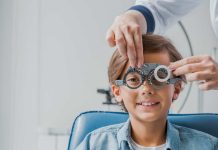
Parenting is challenging, and it can be even more challenging when your child has Attention-Deficit/Hyperactivity Disorder (ADHD). ADHD is a neurodevelopmental disorder that affects a child’s ability to pay attention, control impulsive behavior, and manage hyperactivity. It can cause problems in school, at home, and in social situations. As a parent, it’s important to understand how to support and help your child with ADHD. Here are five things you should know if your child has ADHD:
Understand What ADHD Is
Understanding what ADHD is can be a crucial first step in effectively parenting a child with this condition. ADHD is a neurodevelopmental disorder that affects a child’s ability to control their behavior, sustain attention, and regulate their emotions. It is considered a lifelong condition, but symptoms can vary in severity and may change over time.
The diagnostic criteria for ADHD include the presence of symptoms of inattention, hyperactivity, and impulsivity that interfere with daily functioning. Inattention symptoms may include difficulty staying focused on tasks, losing track of things, and making careless mistakes. Hyperactivity may surface in the form of fidgeting, nervousness, and excessive talking. Impulsivity symptoms may include interrupting others, acting without thinking, and difficulty waiting for turns.
ADHD is a complex condition that can have a significant impact on a child’s life. It can affect their academic performance, social relationships, and self-esteem. Children with ADHD may struggle with completing tasks, following instructions, and maintaining friendships. They may also be at higher risk for anxiety, depression, and substance abuse.
Consistency is Key
Children with ADHD thrive on structure and routine. They need consistency in their daily lives to help them feel secure and in control. It’s important to establish a consistent routine for your child, including regular meal times, bedtimes, and homework schedules. This can help reduce stress and anxiety for both you and your child. It’s also important to be consistent with your parenting approach. Set clear expectations and consequences for behavior, and follow through on them consistently.
Medication is Not Your Only Treatment Option
Medication is often used to treat ADHD, but it’s not the only option. Behavioral therapy can also be effective in treating ADHD. This type of therapy focuses on changing behaviors and developing new coping skills. It’s important to work with your child’s healthcare provider to find the best treatment options for your child.
Positive Reinforcement Can Make All the Difference
People diagnosed with ADHD typically have troubles with self-esteem and confidence. They may feel like they’re always getting in trouble or being criticized for their behavior. It’s important to focus on positive reinforcement and praise when your child does something well. This can help build their self-esteem and encourage positive behavior. You can also use rewards to motivate your child to complete tasks or follow rules. This can be as simple as offering praise or a small treat for a job well done.
Gene Testing Can Provide Valuable Information
One of the most significant benefits of gene testing for children with ADHD is the ability to determine how their bodies will metabolize medication. This information can be crucial in helping your child’s doctor determine the right medication and dosage for your child. With gene testing, doctors can identify specific genetic variations that impact how your child’s body processes medication, and they can use this information to select the most effective treatment options for your child.
Gene testing involves taking a sample of your child’s DNA, usually through a simple cheek swab or blood test. It is a non-invasive procedure that is safe and painless for your child. The results of gene testing can be used to inform treatment decisions and help doctors develop personalized treatment plans for your child.
It is essential to understand that gene testing is not a magic solution for treating ADHD. While gene testing can provide valuable information, it is just one tool in the arsenal of treatments available for children with ADHD. Effective treatment of ADHD requires a comprehensive approach that includes medication, therapy, lifestyle changes, and support from parents and caregivers.
Final Thoughts
In conclusion, parenting a child with ADHD can be challenging, but it’s important to remember that ADHD is not caused by bad parenting. Consistency, positive reinforcement, and self-care are important for both you and your child. Medication is not the only treatment option, and it’s important to work with your child’s healthcare provider to find the best treatment options for your child. With patience, understanding, and support, you can help your child with ADHD thrive.









